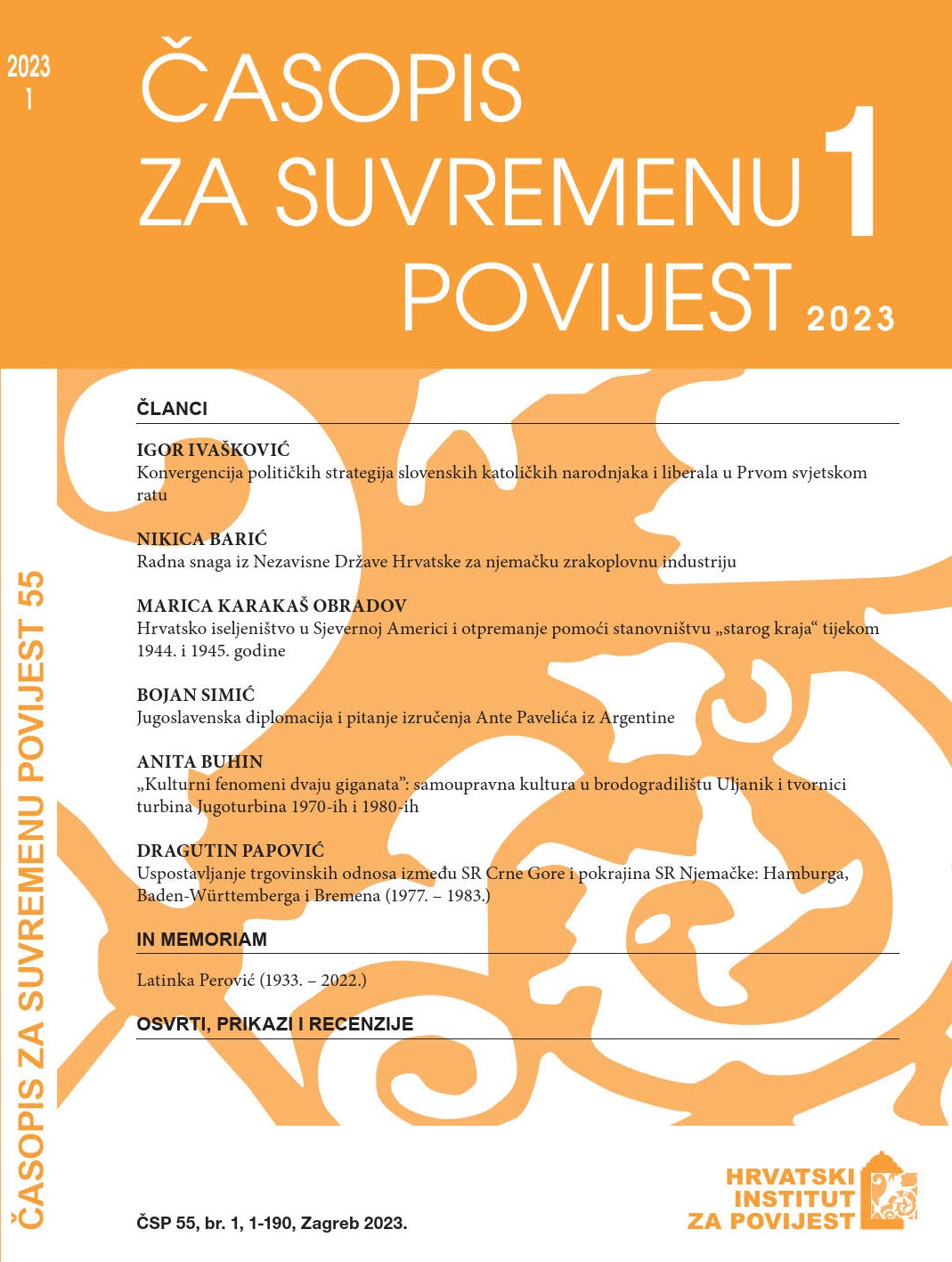Jugoslavenska diplomacija i pitanje izručenja Ante Pavelića iz Argentine
Yugoslav Diplomacy and the Question of Ante Pavelićʼs Extradition from Argentina
Author(s): Bojan V. SimićSubject(s): History, WW II and following years (1940 - 1949), Post-War period (1950 - 1989), History of Communism, Fascism, Nazism and WW II
Published by: Hrvatski institut za povijest
Keywords: Yugoslavia; Argentina; Ante Pavelić; extradition; diplomacy;
Summary/Abstract: The former leader of the Independent State of Croatia Ante Pavelić was in Argentina from November 1948. Yugoslav diplomats found out about this in the following months. In the first period they gathered information considering Pavelićʼs whereabouts and susbmitted formal inquiries to the Argentine Ministry of Foreign Affairs. When Pavelićʼs activities became more frequent and more organized, especially with the forming of his government in exile, Yugoslav diplomacy decided to act. In May 1951, the formal extradition was asked. It appears that Argentina never officially replied to the request. The Yugoslav side continued to put pressure on the Argentine Ministry of Foreign Affairs, which made them change their tactics. Obviously, in agreement with Pavelić himself, they tried to make it appear that he had left Argentina and moved to Uruguay. In order to support this hypothesis, Pavelić made his speeches through Radio Montevideo and in interviews, he insisted that journalists write that he was anywhere but Argentina. Argentine officials also spread rumors that he was in Uruguay in conversations with Yugoslav colleagues. Very soon they saw through this game because it was clear that Pavelić was still in Buenos Aires.In the following years there was a similar game. Yugoslav diplomacy tried to convince Argentine colleagues that Pavelić was in their country and they that he was not. The fall of the Peron regime in 1955, did not change the situation. The Yugoslav side tried to use the animosity that the new government had for its predecessors but with little success. Only in 1957 did the situation change as a result of an assassination attempt on Pavelić. At that point it was clear that he was still in Buenos Aires. Yugoslav diplomacy made another request for his extradition only a few days after the assassination attempt. The pressure that was exerted led Pavelić to go into hiding, first in Argentina after which he fled to Chile and finally to Spain at the end of 1957. Unaware of the fact that Pavelić left Argentina, Yugoslav diplomacy continued to fight for his extradition in the following year. They changed tactics and asked for extradition, according to the Argentine law relating to common criminals. This attempt had a flaw in its design. The death penalty that obviously awaited Pavelić in Yugoslavia was not allowed by Argentine laws. The Yugoslav side put itself in a difficult situation because it could not bring itself to declare that Pavelić would not be sentenced to death after extradition. This urged them to slow down the process even more. Pavelićʼs death in 1959 put an end to this eight year long procedure for his extradition to Yugoslavia.
Journal: Časopis za suvremenu povijest
- Issue Year: 55/2023
- Issue No: 1
- Page Range: 75-91
- Page Count: 17
- Language: English, Croatian

